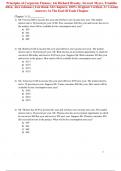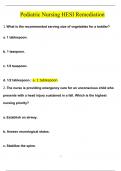Exam (elaborations)
Test Bank for Principles of Corporate Finance 14th Edition By Richard Brealey, Stewart Myers, Franklin Allen, Alex Edmans (All Chapters, 100% Original Verified, A+ Grade)
- Course
- Institution
This Is Original 14th Edition of Test Bank From Original Author. All Other Files in the market are fake/old Edition. Other Sellers Have changed old Edition Number to new But Test Bank is old Edition. Test Bank for Principles of Corporate Finance 14th Edition By Richard Brealey, Stewart Myers, F...
[Show more]






